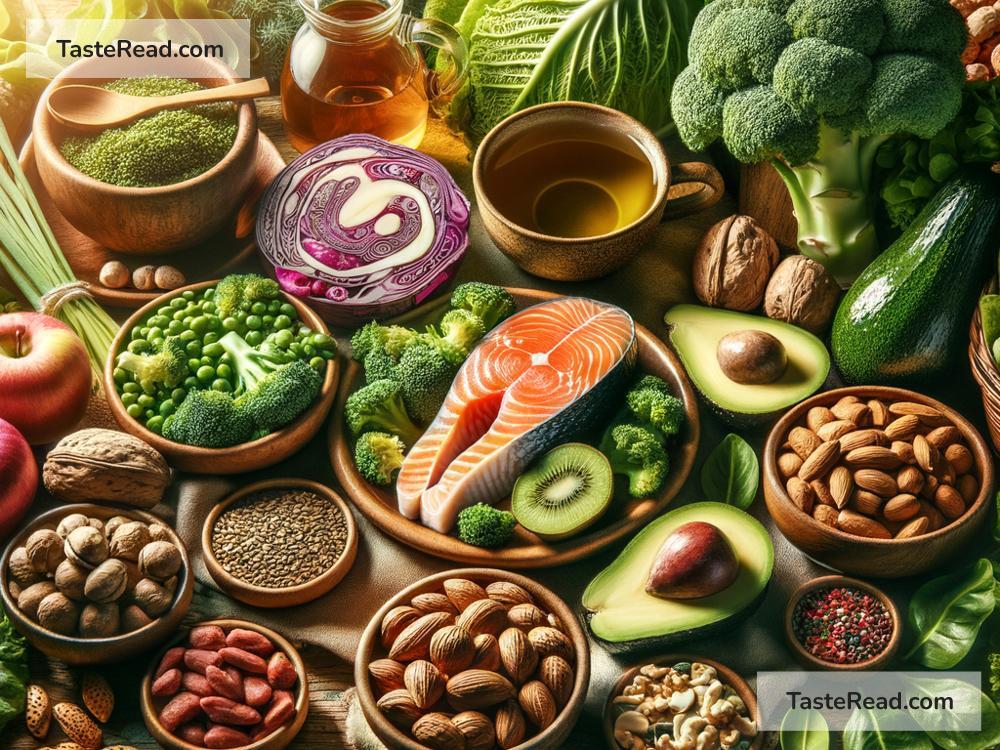Foods That Reduce the Risk of TMJ Disorders
Temporomandibular joint (TMJ) disorders are conditions that affect the jaw joint and the muscles controlling jaw movement. They can cause pain, stiffness, difficulty chewing, and even headaches. While TMJ issues can arise from stress, poor posture, teeth grinding, or injury, the foods you eat may also play a surprising role in reducing your risk of developing TMJ disorders. Adopting an anti-inflammatory, joint-friendly diet can ease pressure on the jaw and prevent symptoms from worsening.
In this blog, we’ll explore the types of foods that can support jaw function, reduce inflammation, and help you protect your TMJ health.
How Does Food Affect TMJ?
When it comes to TMJ disorders, minimizing strain on your jaw and keeping inflammation at bay is key. Certain foods can help by:
- Reducing inflammation: Inflammation may worsen TMJ disorders by irritating the muscles and ligaments around the jaw.
- Improving joint health: Nutritional building blocks like vitamins, minerals, and healthy fats contribute to strong and flexible joint tissues.
- Preventing wear and tear: Soft, easy-to-chew foods put less pressure on the jaw joint, reducing the chance of discomfort or injury.
By making smarter food choices, you can keep your TMJ joints healthy and potentially lower your risk of developing disorders affecting them.
Foods That Reduce TMJ Risk
Here are some types of foods to incorporate into your diet to protect your jaw and minimize problems:
1. Anti-Inflammatory Foods
Inflammation can aggravate TMJ disorders and make symptoms worse. Foods with anti-inflammatory properties can help calm the body and reduce swelling.
- Fatty fish: Salmon, mackerel, and sardines are rich in omega-3 fatty acids, which are known to reduce inflammation.
- Leafy greens: Spinach, kale, and Swiss chard contain antioxidants like Vitamin C that help fight inflammation.
- Berries: Blueberries, strawberries, and raspberries are packed with anti-inflammatory compounds and are easy to eat without excess jaw strain.
- Turmeric: This golden spice contains curcumin, an anti-inflammatory compound that supports joint health.
2. Soft Foods
Hard, chewy, or overly crunchy foods can make TMJ symptoms worse by stressing the jaw joint and muscles. Opting for softer foods can reduce jaw strain.
- Mashed potatoes: Filling and gentle on the jaw.
- Smooth soups: Broth-based soups and those with blended ingredients, like tomato or pumpkin soup, are easy to eat.
- Steamed vegetables: Lightly cooked vegetables, such as zucchini or carrots, are easier to chew.
- Scrambled eggs: A protein-rich option that requires little effort to chew.
3. Foods High in Magnesium
Magnesium helps relax muscles, which can be beneficial if you’re experiencing TMJ-related muscle tension.
- Nuts and seeds: Almonds, pumpkin seeds, and sunflower seeds provide magnesium and healthy fats.
- Avocados: A creamy source of magnesium that’s easy on the jaw.
- Bananas: A soft fruit loaded with magnesium and potassium.
4. Foods Rich in Collagen and Gelatin
Your TMJ joints benefit from collagen, which provides structure to cartilage and connective tissues. Collagen-rich foods help the body maintain joint health.
- Bone broth: This comforting liquid contains collagen and is easy to sip.
- Gelatin-based dishes: Try naturally sweetened gelatin snacks or dishes made with bone broth powder.
- Citrus fruits: Oranges, lemons, and limes are a good source of Vitamin C, which supports collagen production.
5. Hydrating Foods
Dehydration can make muscle pain and stiffness around the TMJ worse. Foods with high water content help keep your body hydrated and your joints lubricated.
- Cucumber: Crisp and hydrating.
- Watermelon: Refreshingly full of water.
- Celery: Hydrating and low-effort to chew.
6. Foods High in Calcium
TMJ disorders may involve weakened jawbones, and calcium plays an essential role in building stronger bones.
- Low-fat yogurt: Soft, calcium-rich, and soothing.
- Cheese: Choose softer varieties like cottage cheese or ricotta.
- Dark leafy greens: Kale and broccoli are calcium-rich options.
Foods to Limit or Avoid
While some foods can reduce the risk of TMJ issues, others may make symptoms worse. These include:
- Chewy snacks: Gum, taffy, or hard candy can strain the jaw.
- Crunchy foods: Chips, hard crackers, or raw carrots require excessive chomping.
- Caffeinated beverages: Coffee and energy drinks may increase muscle tension.
- Sugary treats: Excess sugar promotes inflammation, which can aggravate TMJ symptoms.
Additional Tips for TMJ-Friendly Eating
- Cut food into smaller pieces: Reducing the amount of chewing required can ease strain on your jaw.
- Chew with both sides of your mouth: Balancing your chewing can distribute pressure evenly.
- Eat mindfully and slowly: Avoid rushing meals, as hurried chewing can cause unnecessary jaw tension.
Final Thoughts
Your diet can make a big difference in the health of your TMJ joints. By eating anti-inflammatory foods, choosing easy-to-chew options, and incorporating nutrients like magnesium and calcium, you can lower your risk of jaw discomfort and prevent TMJ disorders. If you’re already dealing with TMJ issues, a jaw-friendly diet may help relieve some of your symptoms.
Remember, food isn’t the only factor—it’s also important to manage stress, maintain good posture, and avoid habits like teeth grinding. By combining these strategies with smart food choices, you’ll be well on your way to keeping your TMJ joints healthy for years to come.


